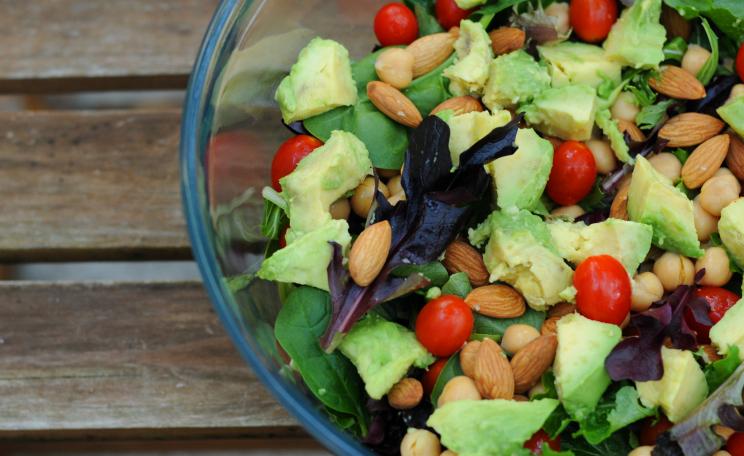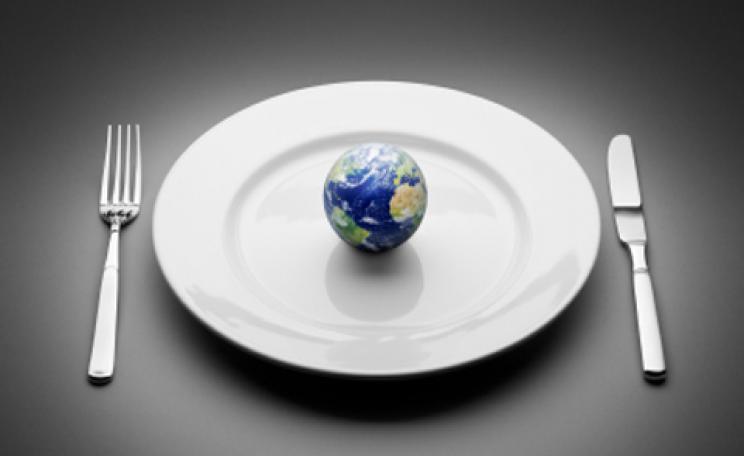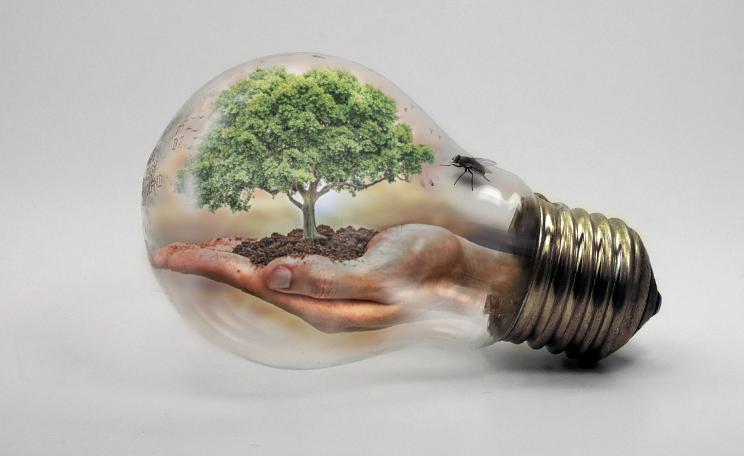If the world went vegan by 2050, there would be up to eight million human lives saved, greenhouse gas emissions reduced by two thirds, and healthcare-related savings and avoided climate damages of $1.5 trillion.
What we eat has a huge impact on climate change and the natural environment. The global animal farming industry creates more greenhouse gas emissions than the whole transport sector combined and is responsible for up to 91 percent of Amazon degradation.
World population is growing, but even if it stayed the same, it is estimated that if everyone adopted a Western diet, we would need four planets the size of Earth to sustain ourselves. On the other hand, producing food for a vegan diet requires about a third of the land and a third of the water used for an animal-based diet. This is because farmed animals eat much more protein than they produce.
The United Nations have urged for a global shift towards a vegan diet to save the world from hunger, fuel poverty and the worst impacts of climate change. Even Greenpeace – historically cautious around the topic of veganism – is now calling for the global meat and dairy production and consumption to be cut in half by 2050.
Bizarre situation
Environmental issues are a broad and complicated topic, especially for those with no interest in science. Most people don't enjoy listening to statistics, but one here and there can go a long way.
The main arguments in favour of vegan diets are that eating animals is inefficient, wasteful and, in 2018, completely unnecessary.
We find ourselves in the bizarre situation where for every 100 calories we feed to animals, we only receive 12 calories back from their flesh and milk. By eating those crops directly, we could feed billions more people around the globe.
Another popular statistic is that the global livestock industry generates as much greenhouse gas emissions as all transport combined. All those transatlantic flights, short hops across the channel, long commutes and school runs, are outweighed by the ‘meat and two veg’ approach most people take to meal times.
This is exacerbated by the fact that animal agriculture is the world’s biggest producer of methane, a far more powerful greenhouse gas than the much maligned CO2.
If the world went vegan by 2050, there would be up to eight million human lives saved, greenhouse gas emissions reduced by two thirds, and healthcare-related savings and avoided climate damages of $1.5 trillion.
Sustainable meat-eating?
Ultimately, animal agriculture can never be sustainable because of the amount of food and water the animals consume, the required space to rear them, and the amount of waste they produce throughout their lives. It’s easier just to eat plants!
Shopping locally and seasonally is important, but it pales in comparison to the impact you can have by changing what you eat.
The Oxford Martin Programme on the Future of Food looked into what would happen if the world went vegan by 2050. There would be up to eight million human lives saved, greenhouse gas emissions reduced by two thirds, and healthcare-related savings and avoided climate damages of $1.5 trillion.
Recent research carried out for The Vegan Society showed that only a fifth of those surveyed had made the link between animal agriculture and climate change, even though 95 percent of them reported that they did at least one thing a week to help the environment.
However, a growing movement is making the link between diet and climate change. There are now 600,000 vegans in the UK, twice as many as two years ago, and we want many more people – particularly those already committed to being more environmentally aware in other aspects of their lives – to join us.
'Plate Up'
Last year, The Vegan Society launched its biggest campaign to date – Plate Up for the Planet. We challenged people to try a vegan diet for seven days to see what the impact would be on their carbon footprint. The results were astounding.
Over 10,000 people took the challenge, saving the same amount of carbon dioxide as flying to the moon and back. Out of those surveyed, 44 percent said they will definitely continue on a vegan diet and 83 percent said they will reduce the amount of meat and dairy they consume.
This Author
Dominika Piasecka is media and PR officer at The Vegan Society, and a keen vegan activist. If you would like to learn more about veganism, sign up to the seven-day challenge here.
Celebrities and decision makers promote the Plate Up for the Planet campaign.







